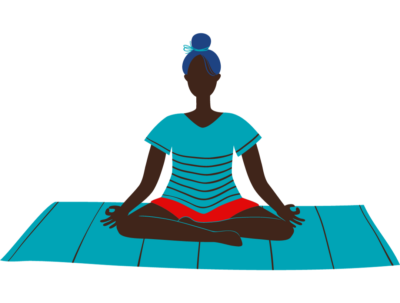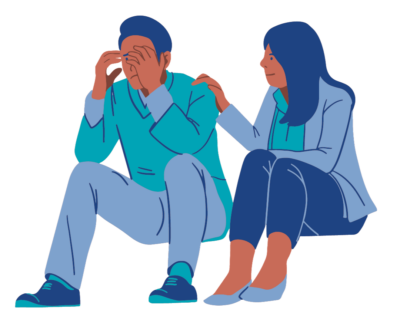Oct 19, 2023
BTE Student Stories

In recognition of World Mental Health Day, which brings awareness to mental health each October 10th, the BTE Youth Leadership Council (YLC) participated in a workshop focused on mental health from a youth lens.
Jami Davis, from the Bowen Center in Warsaw, Indiana, hosted a professional development workshop on mental wellness, self-care strategies, and mental health resources available for young adults transitioning into adulthood. During the session, YLC members had an opportunity to explore the variety of services and resources available through the Bowen Center, which provides comprehensive healthcare services to promote the emotional, physical, and social wellness of community members.
One of the highlights from the professional development workshop was the Q&A session. The following is a summary of questions posed by the YLC, along with professional insights shared by Ms. Davis.
As a student, struggling with the stress of being in school and burnout has been real; you can’t just take a break and leave. What can students do to help with dealing with anxiety and burnout or losing enthusiasm for learning?
This is a great question and something that is very common with both students and adults. A good place to start is to understand your thinking about stress. Do you think about stress as something negative or positive? Usually, the response is negative because stress is typically challenging. Studies show if we view stress as something positive, we can live just as long as a person with low stress in their life. You can think of it as a gauge. Monitor your gauge. If you feel burnt out, reframe it as a positive and think about what you can do to address it; think about your symptoms (i.e., cognitive, emotional, physical).
Remember that symptoms related to stress are normal; most don’t talk about it, but the reality is that we are all going through it at some point; it’s important to talk about it and be open about it. And remember that what you’re experiencing is normal for a temporary situation (such as going through the college application process). Pay attention to those symptoms, which can include changes in sleep, dizziness, or nausea, and be mindful of your actions. When we are tired, we typically drink caffeine or eat comfort foods, most of which is sugar. In order for our bodies to heal, we need REM sleep; caffeine and sugar can prevent you from entering into REM. If you can eliminate caffeine and sugar for at least 3 days, you will likely find you can sleep better.
What are some coping strategies for panic attacks or when you feel like you are having trouble breathing?

Problem breathing, which can sometimes be in the form of a panic attack, typically happens when you’re thinking about things that cause you stress. There are a few breathing or grounding exercises that you can do to help refocus your brain and breathing. It’s best if you can practice these when you are not experiencing high stress so you become familiar with them and they become routine.
Another recommendation would be to create a schedule and build in some self-care things for yourself. These typically bring you happiness. Staying in a routine can help give us the energy and excitement that we need to enjoy life.
How would you help someone who is going thru issues, whether personal or just going thru a tough time?
The biggest piece is just walking alongside them. Remember, we do not always need to fix things, sometimes the biggest thing we can do for someone is to listen. Let them know you care, you are there, and listen. Ask them if there is any way you can be helpful. To the best of your ability, support them. We are all ultimately responsible for ourselves, but we do also have a responsibility to look out for each other. Sometimes people are high-risk and need to be connected to the help they need as well. If you become concerned that a friend may harm themselves, you may need to tell a trusted adult or share resources such as mental health hotlines.

What are some common misconceptions about mental health?
Often times, people think they are the only one going through something. The reality is that you’re not alone. Other people share similar experiences. Another common reality when it comes to mental health, or health in general, is self-diagnosing. It’s important to be self-aware and identify if you are having a problem, but it is usually best to reach out for professional help, particularly if you think you are having persistent challenges or difficulties. There are professionals and resources to support you.
Since COVID, have you seen a rise in mental health services with youth, particularly adolescents? If so, do we know why and how can we address these mental health issues moving forward?
We have definitely seen an increase in the need for mental health resources since COVID. One of the biggest reasons for this is because we are not made to isolate. Since the pandemic, anxiety and depression increased. One of the most important things we can do in general is to make sure we are following up with our connections, whether that means connecting with staff at school, groups like the YLC, or just checking in with friends and family. You never know when someone really needs that connection, and it might help you feel better, too.
*
The BTE YLC was extremely appreciative for the insights and strategies shared during this professional development session. Council members not only walked away with a deeper understanding of mental health services, but also equipped with knowledge and resources to help both themselves and their peers. Our sincerest thanks and appreciation to Jami Davis and the Bowen Center!
